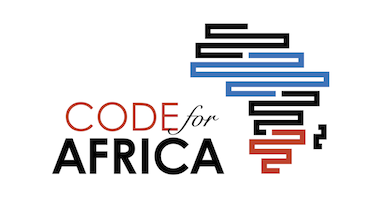
This project will help African media embrace new technology to deliver news that engages audiences.
The International Center for Journalists and Code for Africa have launched a $4.7 million initiative to improve the lives of Africans through data journalism and civic innovation. The three-year program will help African media create and embrace new technology to deliver high quality, data-driven news that engages audiences and leads to better policies.
A team of ICFJ Knight Fellows experienced in investigative journalism, digital strategy, entrepreneurship, community building and citizen reporting will lead the initiative. Working with African partner organizations, they will:
- Build and expand tech centers, or CitizenLabs, to invest in new ideas for reporting and delivering the news and interacting with audiences;
- Embed developers and data journalists into media organizations to create apps and services;
- Connect local communities of journalists and technologists to collaborate on tech solutions to help newsrooms embrace digital change;
- Create business models for new data-driven services; and
- Offer data boot camps to train journalists to utilize new technologies.
The program will build on ICFJ’s previous work in creating a culture of media innovation, such as digital tools, platforms and services created through the African News Innovation Challenge; the network of Hacks/Hackers chapters that bring together journalists and technologists to collaborate on media projects; and the Code for Africa technology centers that enable software developers to create tech solutions for media and civic organizations.
“Data and mobile technology are at a point where they can be used on a massive scale to help people access basic services and information,” said Patrick Butler, ICFJ’s vice president of programs. “This program will help African media organizations take advantage of the new opportunities.”
The initiative also will create effective platforms for ordinary Africans citizens to make their opinions known about public policies and projects related to health, education, farming, infrastructure and other issues that matter to their daily lives. The program is funded through a grant from the Bill & Melinda Gates Foundation. In addition, the Knight Fellowships program receives core support from the John S. and James L. Knight Foundation.
“Our aim is to make journalism relevant to ordinary people again,” said Justin Arenstein, the team’s chief digital strategist and founder of Code for Africa. “It needs to tackle the issues that keep people awake at night like how to keep your children safe, healthy and educated.” To do that, “media organizations have to discover what their audiences really care about and then develop journalism that gives the audience actionable information,” he said.
The other Knight Fellows, who will operate from hubs in Kenya, Nigeria and South Africa, are:
- Chris Roper, a digital specialist and former editor-in-chief of South Africa’s Mail & Guardian newspaper, who will serve as the team’s data editor;
- Stephen Abbott Pugh, a British digital journalist and project manager, who will design and supervise audience engagement strategies;
- Babatunde Akpeji, a Nigerian multimedia journalist, who will head the project in Africa’s largest country;
- Catherine Gicheru, a veteran Kenyan journalist and editor, who will drive the initiative in the East African nation; and
- Raymond Joseph, a longtime South African editor, who will lead a new data journalism training program, or “cadet school,” in South Africa.
Tanzania will be added as a hub in 2016.
Abbott Pugh, the audience engagement specialist, said the program will help African news organizations attract new audiences in the future. “For the media partners we are working with, it will be a valuable opportunity to open up to a new audience and get in touch with the people who are going to come online in the next two to three years,” he said.